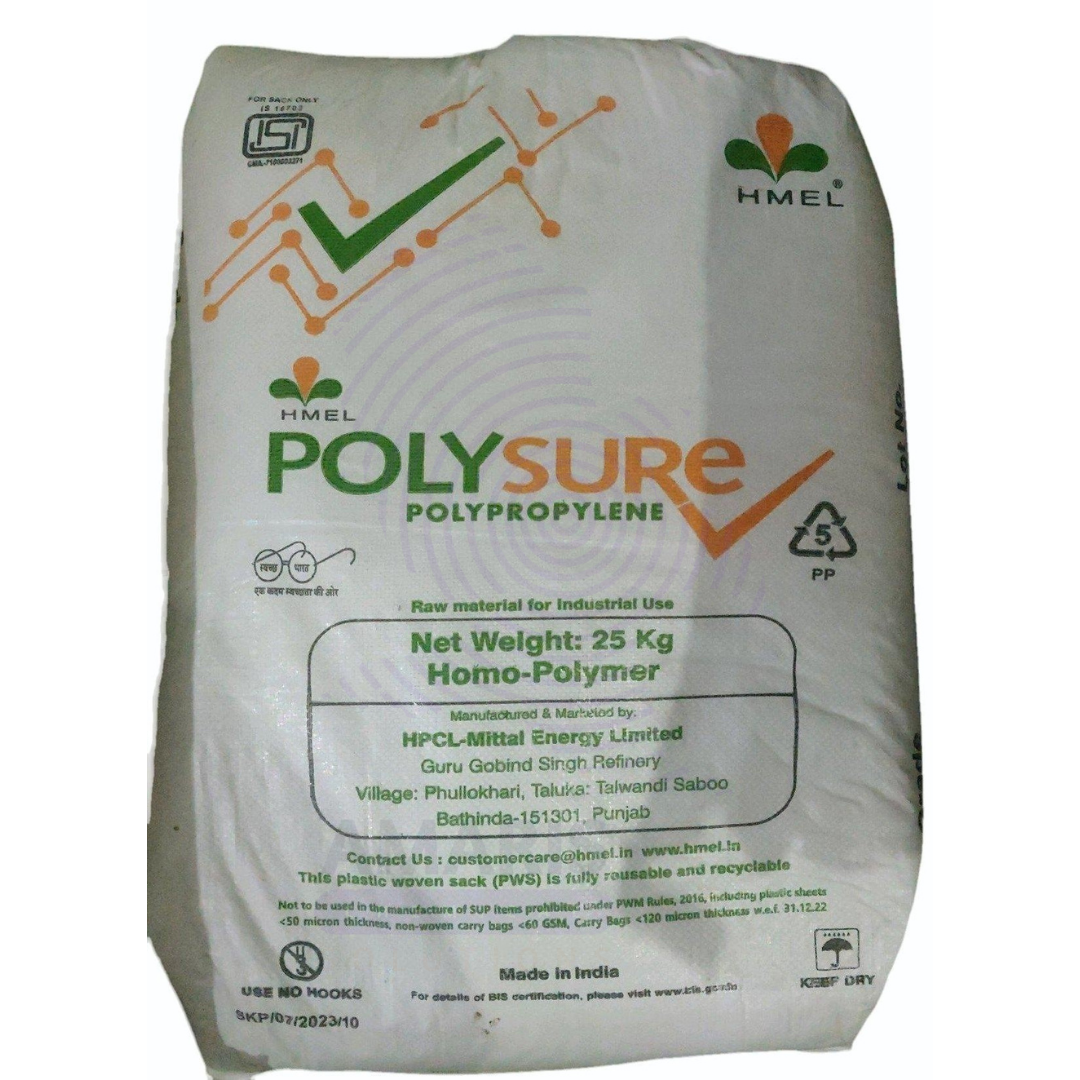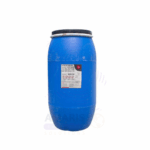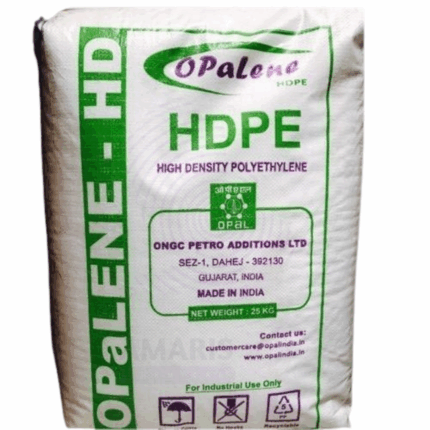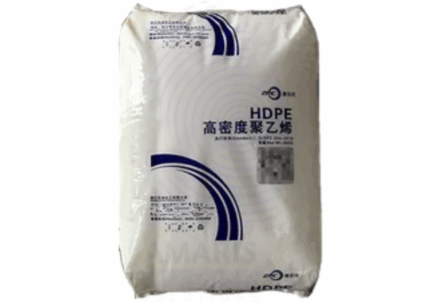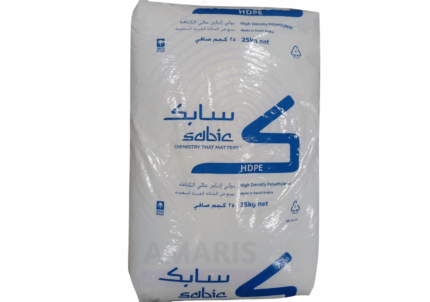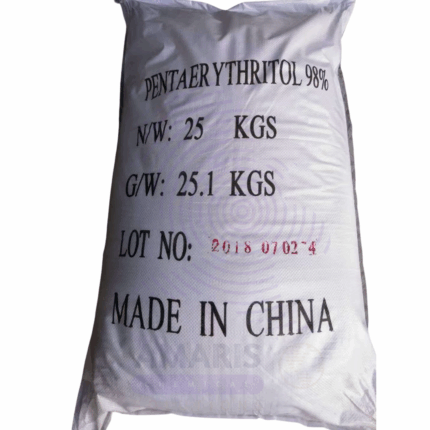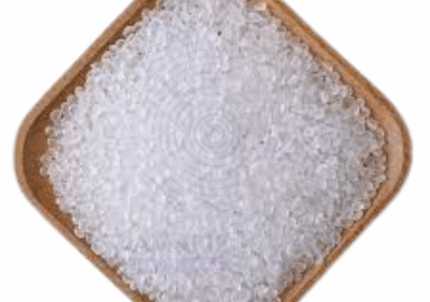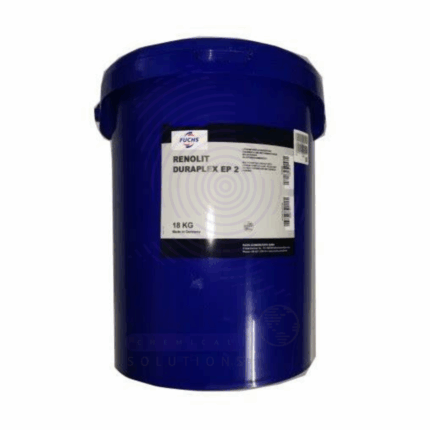PP Raffia 1003
Whatsapp Order
PP Raffia 1003 is a polypropylene homopolymer resin commonly used for manufacturing raffia fibers and woven sacks. It offers high tensile strength, excellent dimensional stability, and good resistance to chemicals and environmental stress. This grade is ideal for producing durable woven fabrics used in packaging, agriculture, and construction applications.
Description
Table of Contents
Toggle
PP Raffia 1003
Primary Uses
- Packaging Industry
- Production of woven polypropylene sacks and bags for bulk packaging of grains, fertilizers, cement, and other commodities.
- Used in manufacturing packaging tapes and straps due to its strength and durability.
- Agriculture
- Employed in woven mats, ground covers, and tarpaulins for soil protection and crop covering.
- Used in bale wraps and sacks for agricultural products.
- Construction
- Used for geotextiles and erosion control fabrics due to high tensile strength and weather resistance.
- Consumer Goods
- Used in reusable shopping bags and other woven fabric products.
Secondary Uses
- Textile Industry
- Production of woven or non-woven fabrics for industrial and household applications.
- Industrial Applications
- Used in manufacturing of filtration fabrics and industrial sacks.
- Transportation
- Utilized in protective packaging and cargo netting.
KEY PRODUCT FEATURES
1. Basic Identification Attributes
- Chemical Name (IUPAC): Polypropylene homopolymer
- Common/Trade Name: PP Raffia 1003
- CAS Number: 9003-07-0
- HS Code: 3902.10
- Synonyms: Polypropylene raffia grade; PP woven fiber resin
2. Physical & Chemical Properties
- Physical State: Granules or pellets
- Color & Odor: Natural/translucent; odorless
- Melting Point: Approximately 165–170°C
- Density: ~0.9 g/cm³
- Mechanical Properties: High tensile strength, good impact resistance
- Chemical Resistance: Resistant to most acids, bases, and solvents
3. Safety & Hazard Attributes
- GHS Classification: Not hazardous
- Toxicity: Non-toxic, inert polymer
- Exposure Limits: No specific limits; standard industrial hygiene applies
4. Storage & Handling Attributes
- Storage Conditions: Store in a cool, dry, and well-ventilated area
- Container Type: Bulk bags, boxes, or containers
- Shelf Life: 1–2 years under proper storage
- Handling Precautions: Avoid dust formation; use PPE when handling dust
5. Regulatory & Compliance Attributes
- Complies with FDA and EU regulations for food contact applications where applicable
- Meets ASTM and ISO standards for polypropylene materials
6. Environmental & Health Impact
- Biodegradability: Not biodegradable; recyclable
- Ecotoxicity: Low environmental impact if properly managed
- Bioaccumulation: Not significant
SAFETY HANDLING PRECAUTIONS
Safety Handling Precautions
- PPE Required: Gloves and dust mask recommended during dusty operations
- Handling Guidelines: Avoid inhalation of dust; maintain ventilation
- Storage Measures: Keep containers sealed and dry
First Aid Measures
- Inhalation: Move to fresh air if irritation occurs due to dust
- Skin Contact: Wash with soap and water if irritation develops
- Eye Contact: Rinse eyes thoroughly if dust enters
- Ingestion: Unlikely route; seek medical advice if necessary
Firefighting Measures
- Fire Hazards: Combustible; produces dense smoke and fumes when burned
- Extinguishing Media: Water spray, foam, dry chemical, or CO₂
- Special Precautions: Use protective breathing apparatus in confined spaces
- Hazardous Combustion Products: Carbon oxides, hydrocarbons
Related products
HDPE Film F52H04
HDPE Film F52H04 Opalene is a high-density polyethylene film grade resin specially engineered for producing thin, flexible, and high-strength films. It is designed for blown film extrusion processes, delivering excellent mechanical properties, superior clarity (opal/opalene finish), and consistent gauge control. This resin offers high tensile strength, good puncture resistance, and excellent moisture barrier properties, making it ideal for packaging applications requiring durability and flexibility. Its balanced processing characteristics enable fast extrusion rates and uniform film thickness.
HDPE Injection HMA035/3255
HDPE Injection HMA035/3255 is a high-density polyethylene resin specially formulated for injection molding processes. This grade exhibits excellent flow characteristics with moderate melt flow index optimized for producing precise, high-strength molded parts with superior surface finish. It combines good impact resistance, stiffness, and chemical resistance with excellent dimensional stability. The resin ensures reliable processing performance across a broad temperature range and is suitable for complex, detailed, or large injection-molded components. It is supplied as uniform granules designed for smooth melting and consistent molding cycles.
HDPE pipe HS CRP 100- PE 100 (black water pipe)
HDPE pipe HS CRP 100- PE 100 (black water pipe) is a high-density polyethylene (HDPE) pipe grade resin specially designed for the manufacture of high-performance pressure pipes. This grade corresponds to PE 100 classification, meaning it has enhanced strength and durability characteristics suitable for high-pressure applications. The resin exhibits excellent resistance to slow crack growth, outstanding chemical resistance, and superior impact strength even at low temperatures. HDPE PE 100 pipe is widely used in demanding infrastructure, water supply, gas distribution, and industrial piping systems due to its long service life, flexibility, and corrosion resistance.
Pentaerythritol
Pentaerythritol is a high-purity, crystalline polyol used extensively in the production of alkyd resins, synthetic lubricants, explosives, and plasticizers. Its multifunctional alcohol structure provides excellent stability, high melting point, and good compatibility with various chemicals. Pentaerythritol 98% is valued for its role as a building block in chemical syntheses, offering enhanced durability, flexibility, and resistance in end products.
Polyvinyl Chloride Resin
Polyvinyl Chloride Resin is a white, odorless powder widely used as the base material in the production of both rigid and flexible PVC products. It is produced by polymerizing vinyl chloride monomer (VCM) and is categorized by K-value, which defines molecular weight and processing characteristics. PVC resin is valued for its durability, chemical resistance, electrical insulation, and flame retardancy. It is one of the most versatile plastics used across multiple industries including construction, electrical, automotive, packaging, and healthcare.
RAP 55D
RAP 55D is a grade of impact copolymer polypropylene (PP) resin designed primarily for injection molding applications. It features a balance of rigidity and impact strength, making it ideal for manufacturing durable plastic parts. This resin offers excellent processability, dimensional stability, and resistance to chemicals and moisture. RAP 55D is used across automotive, household, industrial, and packaging sectors due to its robust mechanical properties and versatility.
Renolit Duraplex EP 2, 3
Renolit Duraplex EP 2 and EP 3 are high-performance extreme pressure (EP) lithium-based grease lubricants designed for heavy-duty industrial and automotive applications. These greases provide excellent mechanical stability, water resistance, and protection against wear and corrosion under high load and temperature conditions. Formulated with high-quality base oils and additives, Renolit Duraplex EP greases ensure long service intervals and reliable operation of bearings, joints, and other moving components.
Toluene Diisocyanate
Toluene Diisocyanate is a highly reactive chemical compound primarily used as a key raw material in the production of polyurethane foams. It is a colorless to pale yellow liquid with a pungent odor and is valued for its ability to react with polyols to form flexible and rigid polyurethane products. TDI’s versatility makes it indispensable in industries like furniture, automotive, insulation, and coatings.


 Preservatives(food)
Preservatives(food) Flavor Enhancers
Flavor Enhancers Acidulants
Acidulants Sweeteners
Sweeteners Antioxidants
Antioxidants Colorants(food)
Colorants(food) Nutraceutical Ingredients (food)
Nutraceutical Ingredients (food) Nutrient Supplements
Nutrient Supplements Emulsifiers
Emulsifiers
 Collectors
Collectors Dust Suppressants
Dust Suppressants Explosives and Blasting Agents
Explosives and Blasting Agents Flocculants and Coagulants
Flocculants and Coagulants Frothers
Frothers Leaching Agents
Leaching Agents pH Modifiers
pH Modifiers Precious Metal Extraction Agents
Precious Metal Extraction Agents
 Antioxidants(plastic)
Antioxidants(plastic) Colorants (Pigments, Dyes)
Colorants (Pigments, Dyes) Fillers and Reinforcements
Fillers and Reinforcements Flame Retardants
Flame Retardants Monomers
Monomers Plasticizers
Plasticizers Polymerization Initiators
Polymerization Initiators Stabilizers (UV, Heat)
Stabilizers (UV, Heat)
 Antifoaming Agents
Antifoaming Agents Chelating Agents
Chelating Agents Coagulants and Flocculants
Coagulants and Flocculants Corrosion Inhibitors
Corrosion Inhibitors Disinfectants and Biocides
Disinfectants and Biocides Oxidizing Agents
Oxidizing Agents pH Adjusters
pH Adjusters Scale Inhibitors( water)
Scale Inhibitors( water)
 Antioxidants(cosmetic)
Antioxidants(cosmetic) Emollients
Emollients Fragrances and Essential Oils
Fragrances and Essential Oils Humectants
Humectants Preservatives
Preservatives Surfactants(cosmetic)
Surfactants(cosmetic) Thickeners
Thickeners UV Filters
UV Filters
 Fertilizers
Fertilizers Soil Conditioners
Soil Conditioners Plant Growth Regulators
Plant Growth Regulators Animal Feed Additives
Animal Feed Additives Biostimulants
Biostimulants Pesticides (Herbicides, Insecticides, Fungicides)
Pesticides (Herbicides, Insecticides, Fungicides)
 Active Pharmaceutical Ingredients (APIs)
Active Pharmaceutical Ingredients (APIs) Excipients
Excipients Solvents(pharmaceutical)
Solvents(pharmaceutical) Antibiotics
Antibiotics Antiseptics and Disinfectants
Antiseptics and Disinfectants Vaccine Adjuvants
Vaccine Adjuvants Nutraceutical Ingredients (pharmaceutical)
Nutraceutical Ingredients (pharmaceutical) Analgesics & Antipyretics
Analgesics & Antipyretics
 Analytical Reagents
Analytical Reagents Solvents(lab)
Solvents(lab) Chromatography Chemicals
Chromatography Chemicals Spectroscopy Reagents
Spectroscopy Reagents microbiology-and-cell-culture-reagents
microbiology-and-cell-culture-reagents Molecular Biology Reagents
Molecular Biology Reagents Biochemical Reagents
Biochemical Reagents Inorganic and Organic Standards
Inorganic and Organic Standards Laboratory Safety Chemicals
Laboratory Safety Chemicals Specialty Laboratory Chemicals(Special Laboratory Equipment)
Specialty Laboratory Chemicals(Special Laboratory Equipment)
 Demulsifiers
Demulsifiers Hydraulic Fracturing Fluids
Hydraulic Fracturing Fluids Scale Inhibitors(oil)
Scale Inhibitors(oil) Surfactants(oil)
Surfactants(oil) Drilling Fluids
Drilling Fluids
 Dyes and Pigments
Dyes and Pigments Bleaching Agents
Bleaching Agents Softening Agents
Softening Agents Finishing Agents
Finishing Agents Antistatic Agents
Antistatic Agents
 Admixtures
Admixtures Waterproofing Agents
Waterproofing Agents Sealants and Adhesives
Sealants and Adhesives Curing Compounds
Curing Compounds Concrete Repair Chemicals
Concrete Repair Chemicals Anti-Corrosion Coatings
Anti-Corrosion Coatings
 Surfactants(cleaning)
Surfactants(cleaning) Builders
Builders Enzymes
Enzymes Solvents (Cleaning)
Solvents (Cleaning) Fragrances
Fragrances
 Electronic Chemicals
Electronic Chemicals Catalysts
Catalysts Lubricants
Lubricants Photographic Chemicals
Photographic Chemicals Refrigerants
Refrigerants Automotive chemicals
Automotive chemicals Pyrotechnic Chemicals
Pyrotechnic Chemicals
 Biodegradable Surfactants
Biodegradable Surfactants Bio-based Solvents
Bio-based Solvents Renewable Polymers
Renewable Polymers Carbon Capture Chemicals
Carbon Capture Chemicals Wastewater Treatment Chemicals
Wastewater Treatment Chemicals
 Pigments
Pigments Solvents(paint)
Solvents(paint) Specialty Coatings
Specialty Coatings Binders/Resins
Binders/Resins Additives
Additives Driers
Driers Anti-Corrosion Agents
Anti-Corrosion Agents Functional Coatings
Functional Coatings Application-Specific Coatings
Application-Specific Coatings
 Fresh Herbs
Fresh Herbs Ground Spices
Ground Spices Whole Spices
Whole Spices Spice Blends
Spice Blends Dried Herbs
Dried Herbs
 Leavening Agents
Leavening Agents Dough Conditioners
Dough Conditioners Flour Treatments
Flour Treatments Fat Replacers
Fat Replacers Decoratives
Decoratives Preservatives(baking)
Preservatives(baking)
 Plasticizers & Softeners
Plasticizers & Softeners Reinforcing Agents
Reinforcing Agents Adhesion Promoters
Adhesion Promoters Vulcanizing Agents
Vulcanizing Agents Antidegradants
Antidegradants Blowing Agents
Blowing Agents Fillers & Extenders
Fillers & Extenders Accelerators & Retarders
Accelerators & Retarders